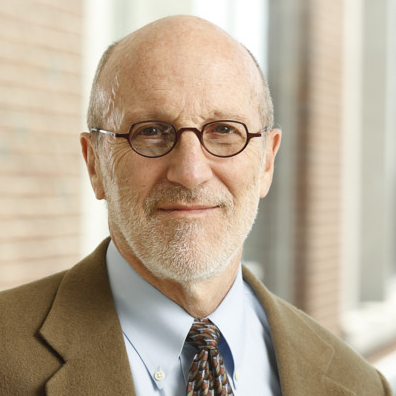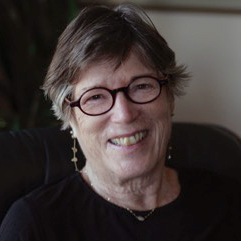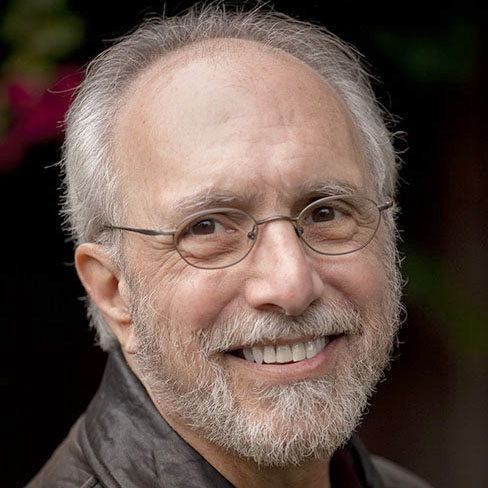We first realized that COVID-19 might lead to an extended discussion of end-of-life care when our social worker, Elia, alerted us several weeks ago that her volume of calls was increasing steadily as the pandemic swept across the globe. Callers were raising new themes centered on the impact of COVID-19 on end-of-life care and advance directives.
During this difficult time, we are committed to providing you with reliable information. So we reached out to our generous network to bring you the perspective and knowledge of nurses, palliative physicians, and medical ethicists on the complex medical questions that have arisen over the last few weeks.
Our panel of experts responded to four of the most frequently asked questions. As you will see, these answers are not all the same, but they each provide a nuanced approach through different lenses.
Let us introduce the experts:

Thaddeus Mason Pope, JD, PhD is Director of the Health Law Institute and Professor of Law at Mitchell Hamline School of Law in Saint Paul, Minnesota.
He has over 200 publications in leading medical journals, law reviews, bar journals, nursing journals, bioethics journals, and book chapters. He coauthors the 1500-page The Right to Die: The Law of End-of-Life Decision Making and runs the popular Medical Futility Blog.
Pope co-authored both clinical practice guidelines for medical aid in dying and policy guidance on ethics in critical care for major professional medical societies. Apart from his scholarship, Pope has served as a legal consultant and expert witness in court cases involving end-of-life treatment.

Timothy E. Quill, MD is Professor of Medicine, Psychiatry, Medical Humanities and Nursing at the University of Rochester Medical Center (URMC). He was Past President of the American Academy of Hospice and Palliative Medicine and founding Director of the URMC Palliative Care Program, and is a practicing palliative care consultant.
Dr. Quill is the author of “Death with Dignity: A Case of Individualized Decision Making” published in 1991 in the New England Journal of Medicine and of seven books on palliative and end-of-life care.
He was the lead physician plaintiff in the New York legal case challenging the law prohibiting physician-assisted death heard in 1997 by the U.S. Supreme Court (Quill v. Vacco).

Judith Schwarz, PhD is a Clinical Director at End of Life Choices New York and an expert on ethical issues relating to patient self-determination and informed end of life decision-making. She has published numerous articles in peer-reviewed professional journals.
Judith is a nationally recognized expert on the option of voluntarily stopping eating and drinking (VSED) as a means for capacitated and suffering patients to control the circumstances and timing of death. She has spoken at local and state nursing conferences, and in 2014 she co-presented a workshop about VSED at the Management and Leadership Conference of the National Hospice and Palliative Care Program.
She earned a PhD in nursing research from New York University, a MSN from Lehman College, and an RN from St. Luke’s School of Nursing.

Lonny Shavelson, MD founded Bay Area End of Life Options and the American Clinicians Academy on Medical Aid in Dying. Before that, he worked for 29 years as an emergency department physician, then seven as a primary care physician in a clinic for immigrants and refugees.
He is now a consultant, educator and physician for terminally ill patients who are considering various options, including medical aid in dying.
Requesting Death with Dignity Medications During the Pandemic
Q: “My doctor told me that my cancer took a bad turn, and I only have about six months to live. I was going to wait to start the process because I still feel okay and I want to wait until my next appointment with my doctor to talk to her about it. But, with COVID-19, should I rush to get through the process to make sure I have the medication in case I get coronavirus? I am an at-risk group with an underlying condition.” —Sarah
Timothy Quill, MD: First of all you should maintain all of the social distancing recommendations as you want to avoid exposure to anyone who has the COVID-19 virus.
Given that limitation, you should do your best to make the most of the time you have despite these limitations. Given waiting periods, if you feel strongly about accessing the option of medical aid in dying should you need it in the future, I would suggest making a virtual appointment to discuss this possibility with your doctor. This could probably start the waiting period without forcing you to go out in public, if your doctor is open to the idea. If he or she is not, it would be good to find a clinician who is to begin the discussion.
Let’s hope you do not need it but it would be good to know what is possible.
Judith Schwarz, PhD: If you intend to use the medical aid in dying law, I would encourage you to begin the process as soon as is practically possible. Perhaps you can speak with your doctor about the process by use of telemedicine?
That being said, it often takes longer than anticipated under the best of circumstances to complete the process and actually acquire the medication. The current circumstances are less than ideal. If you were so unlucky as to get the coronavirus, given your various underlying conditions, your respiratory system might be particularly vulnerable, thus your time to act decisively might be quite limited.
Lonny Shavelson, MD:
Dear Sarah,
I’m sorry to hear about your cancer progression, now compounded by the coronavirus epidemic. The most important thing to consider at this moment is what you would do if you contract COVID-19 soon and became quite sick with it.
- Would you stay at home and seek to be made comfortable, with the potential of dying there? (Hospice care would be available, but check with your local hospices about their coronavirus policy.)
- Would you go to a hospital for treatment?
- If you would go to a hospital for treatment, would that include only basic supportive care (IV fluids, oxygen by mask), or would you want to be put on a ventilator (if needed) to get the best chance of surviving?
Here’s how that decision interacts with decisions about considering medical aid in dying:
If you would go to a hospital and be willing to use a ventilator, there’s probably no need for urgency in getting medical aid in dying set up—you’ll either die on the ventilator, or survive and go home to die of your cancer months later. (Of course, there are some other mid-range outcomes, but those two would be the most common.)
Please note that aid in dying is almost never offered in a hospital (it is mostly limited to home deaths), so if you follow the most medically-intensive course to stay alive in the hospital but that fails, you or your loved ones should advocate for aggressive palliative care to make your death as comfortable and dignified as possible.
But if you would stay at home even if dying from the coronavirus, then I would suggest that you get aid in dying set up soon (don’t forget that once you make the request you still have a 15-day waiting period, 20 if you’re in Hawaii. If you’re in Oregon and dying rapidly, the 15-day wait can be bypassed). In this case, it would be wise to start the aid-in-dying qualification process as soon as you can. Then, with luck, you won’t get COVID-19 and you’ll have everything prepared to consider aid in dying when you become sicker from your cancer. There’s nothing lost by being prepared sooner.
But there are other possibilities: Why wait until your next appointment with your doctor? You could ask for a telemedicine appointment just to talk with your doctor about aid in dying. This would start the 15-day waiting period, and the full evaluation could proceed during that waiting period, still with telemedicine or with an office visit. (Many aid-in-dying organizations are backing telemedicine for this purpose. For the position of the American Clinicians Academy on Medical Aid in Dying, see here.)
As well, if you do not want to go to the hospital should you become ill with coronavirus, you should have preparations for hospice care, at least knowing what hospice you would call (many hospices don’t need a physician referral, their own physicians can evaluate you for hospice care should the need arise). So, as in many situations in medicine, decision making depends on individual circumstances and individual desires. Mostly, think through in advance the details of what you’d want to do, and then make plans according to those details.
Access to Death with Dignity for COVID-19 Patients
Q: “I am not terminally ill, but I want to know ASAP how to get death with dignity if my pneumonia proves to be coronavirus. I live in Oregon, and I’m 82.” —Grace
Q: “How do I access the Maine Death with Dignity Act if I come down with COVID-19? I want to be ready.” — Thomas
Timothy Quill, MD: Medical aid in dying is probably not going to be an option for you in such a circumstance as you are not terminally ill and the waiting period would be too long to respond to the [coronavirus] infection from which most people recover.
If you want to cover your next best options, I would make sure that you have a do not resuscitate (DNR) order in place (no cardiopulmonary resuscitation if your heart stops) and do not intubate (no breathing tube), and make sure your doctor knows that if you get seriously acutely ill from something like COVID-19, you want “comfort measures only,” and that you want to aggressively be made comfortable including sedation for serious symptoms.
It is probably not exactly what you want but it is the next best and most realistic option for you given that you are not terminally ill.
Of course the best option is to not expose yourself to people who might be infected with the virus by maintaining rigid social distancing.
Judith Schwarz, PhD: There is a process that must be completed that includes having two physicians confirm that your disease is in terminal stage, that you are decisionally capable, that you can wait for 15 days between making the first and second request for medical aid in dying and you can self-administer the medication. That is a lot to do when one has pneumonia. Plus, it should be noted that not all who are diagnosed with COVID-19 die as a result, although your age certainly puts you in a heightened risk category.
Lonny Shavelson, MD:
Dear Grace:
If you come down with COVID-19 and are acutely ill and dying, Oregon law now allows your aid-in-dying physicians to move forward even if you haven’t passed the 15-day waiting period.
But beware: If the COVID-19 progresses rapidly to confusion and/or unconsciousness, then you cannot consent to aid in dying.
But in that case, you probably wouldn’t need to have aid in dying, you’ll die well without aid in dying but with aggressive palliative care (which your loved ones should insist on). So in your case, there’s no need to plan for aid in dying in advance, you can wait to see what happens and move quickly if need be.
(NOTE: That still means you should carefully think through other general plans for end-of-life care, including a durable power of attorney and advance directive, and to think carefully about whether you’d go to a hospital, use a ventilator, etc., if you do get seriously ill from coronavirus or other diseases).
Dear Thomas:
This is a bit of a pickle. If you don’t presently have a terminal disease (risk of COVID-19 doesn’t qualify), then you can’t begin the process of aid in dying. And if you do become terminal because of a serious/critical infection with COVID-19 (a mild infection isn’t terminal), then you are likely to either survive or die within the 15-day waiting period for aid in dying. So either way, aid in dying doesn’t apply for you.
As well, since COVID-19 is such a new disease, we don’t have good information about establishing an accurate prognosis for who will live and who will die, so it’s difficult to say at an early point in the illness that you have less than 6 months to live, which is a requirement for aid in dying. That makes it unlikely that you can access aid in dying due to coronavirus infection.
But rest a bit at ease: If you don’t have a serious coronavirus infection, you don’t need to worry about aid in dying. And if you do have a serious coronavirus infection, you or your representative can request aggressive palliative care, and die with some ease.
Please remember: Not everyone died a miserable, undignified death before aid in dying was legalized. There are many routes to a dignified death, and aid in dying is only one of them. Aggressive palliative care can provide for comfort and dignity while you die.
Completing or Updating Your Advance Directive
Q: “I’ve been remiss in filling out advance directives and in light of current events ought to complete them. In addition, I’ve been trying to research information about death with dignity in regards to communicable diseases, e.g. COVID-19, antibiotic resistant infections, etc.” —Jerome
Judith Schwarz, PhD: See my above response about the need for terminal diagnosis confirmed by two physicians before being eligible for any legal access to medical aid in dying.
You certainly ought to complete an advance directive that appoints someone to be your health care agent or proxy in the event you lose the ability to make decisions for yourself. You also must communicate your values and wishes regarding the level of care you would want in the event you acquire such diseases.
Given the shortage of ventilators, some are making choices now, about whether they would want to be intubated and connected to a ventilator in the future.
Timothy Quill, MD: You should fill out an advance directive which states what kinds of treatment you do and do not want if you lose decision making ability in the future (mine says I want morphine for everything under that circumstance).
Remember that the vast majority of people recover fully from COVID-19 if they get it, so you may want to give treatment a try, but then let it be known if you are not getting better you would want “comfort measures only” (if that is indeed what you want).
Medical aid in dying is not going to legally fit into this circumstance.
Lonny Shavelson, MD:
Dear Jerome,
The existence of COVID-19 should not change your need to make formal plans for your health care should serious or terminal illnesses take over your life. Do it now!
But, in general, communicable diseases are acute diseases, and medical aid in dying rarely comes into play with sudden-onset rapid-death diseases. In those cases, aggressive palliative care is what you will need, and should advocate for.
Honoring Advance Directives during Coronavirus (COVID-19) crisis
Q: “How can I make sure my advance directive gets honored in this era of COVID-19?” —Sally
Q: “Is there a practical way that elders like myself could refuse hospitalization on the grounds that hospital beds should go to the young, health workers, first responders, and the like?” —Margaret
Thaddeus Pope, JD, PhD: Some older or seriously ill individuals might want CPR, mechanical ventilation, or ICU care, if it were available. But under surge conditions, they would prefer that scarce resources instead go to others. To achieve this goal, you should take these four steps:
- If you have decision-making capacity, you may refuse treatment on your own behalf. Health care providers must always honor refusals by capacitated patients.
- In case you lack capacity at the time you need hospitalization, document your preferences now in an advance directive. Advance directives are always conditioned on the existence of certain situations. So, be clear that you decline interventions only when beds or resources are needed for others.
- Appoint a strong health care agent whom you trust to enforce your advance directive.
- You may want to supplement your advance directive with a POLST (Physician Orders For Life-Sustaining Treatment). Unlike an advance directive, POLST is immediately actionable and more likely to be honored. But if your preferences were specific to the surge situation, you should revise your POLST after the pandemic.
Timothy Quill, MD: An advance directive says what you do and do not want if you lose the ability to make medical decisions in the future.
If you would want “comfort measures only” under that circumstance (as I do) then you should say so in your advance directive.
If you would not want to receive cardiopulmonary resuscitation or be on a breathing machine under any circumstances, you should complete a do not resuscitate and do not intubate form, and specify what other treatments you would and would not want if you experience a medical emergency.
The forms on which to do this are called MOLST (Medical Orders for Life-Sustaining Treatment) or POLST (Physician Orders For Life-Sustaining Treatment).
If you have strong feelings about setting such limits, I would talk with your family about your wishes and then make a virtual (phone or web) appointment with your doctor and make sure he or she knows your wishes and make sure you have the proper paperwork filled out.
Judith Schwarz, PhD: The best way to ensure your wishes are honored in any clinical situation is to have a well informed (and zealous) person appointed as your health care agent. This agent who knows your wishes should be prepared to inform your caregivers about your priorities.
Regarding your particular concerns about hospitalization under these current circumstances, you should not only inform your agent, but also put these preferences in writing on the face [front page] of the proxy form (or durable power of attorney for health care) or completed MOLST form.
There is always room for additional instructions on these documents. If you do not want to be intubated or be resuscitated, you should indicate that choice on your MOLST form or obtain an ‘out of hospital do not resuscitate order’.
Lonny Shavelson, MD:
Dear Margaret,
You do not need to explain your motives in order to refuse hospitalization (or any other treatments). You should tell your wishes to your family (should you desire to), your durable power of attorney, your doctors and other providers, and ask to be sure they’ll honor those wishes.
The best way to do that is through the formal process of advance directives, etc., and then to be sure that all involved know about your wishes and honor them.
We’re Here to Help
During these unprecedented and undeniably scary times, while our work in legislatures across the country may be on hold, we remain available to answer questions, provide support and help. We appreciate the questions and outreach we’ve been receiving. If you’d like more information or have any other questions, please send us a message.
As we navigate uncertain times together, we are grateful to you for your continued support and understanding that, now more than ever, it is vital we expand the freedom of all Americans to make their own decisions about end-of-life care.
In the meantime, we hope you are able to stay safe at home.